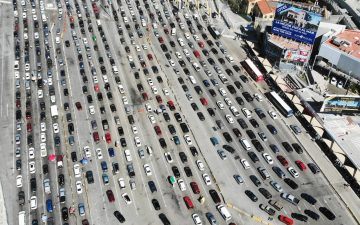Hettie O’Brien in New Statesman:
 The car, wrote the French thinker André Gorz, “supports in everyone the illusion that each individual can seek his or her own benefit at the expense of everyone else”. Writing in 1973, Gorz was frustrated by a paradox: cars had once been a luxury, invented to provide the wealthy with the unprecedented privilege of travelling much faster than everyone else. But they later became a necessity – objects considered so vital that people were willing to take on debt to acquire them. “This practical devaluation has not yet been followed by an ideological devaluation,” Gorz observed. Cars are still treated as a “sacred cow” – rather than an antisocial product.
The car, wrote the French thinker André Gorz, “supports in everyone the illusion that each individual can seek his or her own benefit at the expense of everyone else”. Writing in 1973, Gorz was frustrated by a paradox: cars had once been a luxury, invented to provide the wealthy with the unprecedented privilege of travelling much faster than everyone else. But they later became a necessity – objects considered so vital that people were willing to take on debt to acquire them. “This practical devaluation has not yet been followed by an ideological devaluation,” Gorz observed. Cars are still treated as a “sacred cow” – rather than an antisocial product.
Have cars made people happier? As a commuter (one who admittedly can’t drive), I’d argue not. They are an emblem of individualism, represented by former prime minister Margaret Thatcher’s embrace of private car ownership (in 1986, she cut the ribbon on the final stretch of the M25). Whether speeding along cycle paths or seated on a bus, journeying to work in London and many other cities is often slowed – and imperilled – by steel boxes regularly carrying only a single individual. They occupy scarce public space and emit noxious fumes.
More than anything, cars seem increasingly inappropriate in a world endangered by climate change.
More here.
